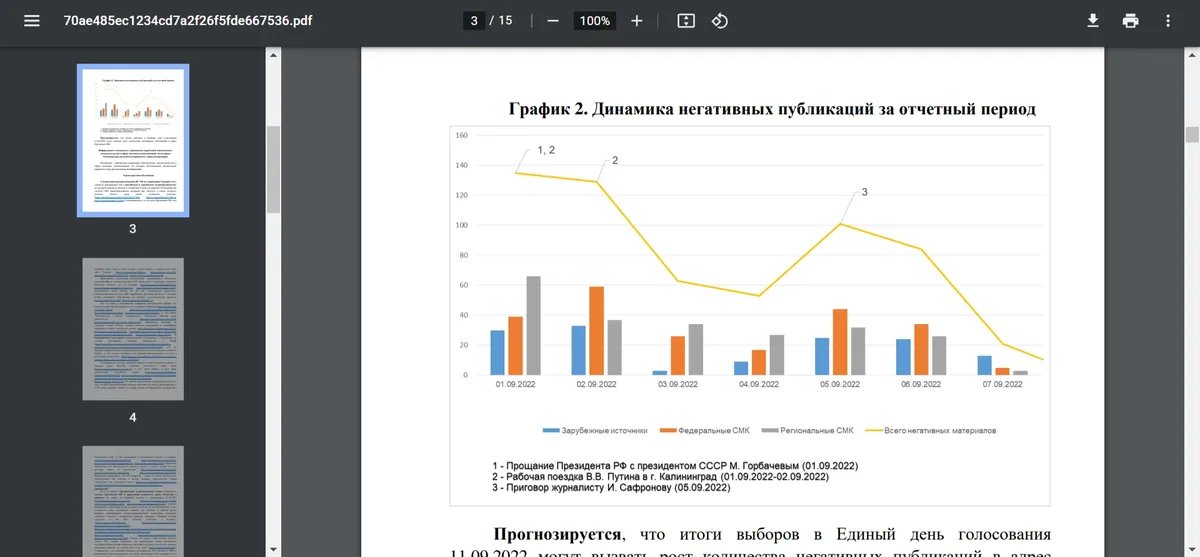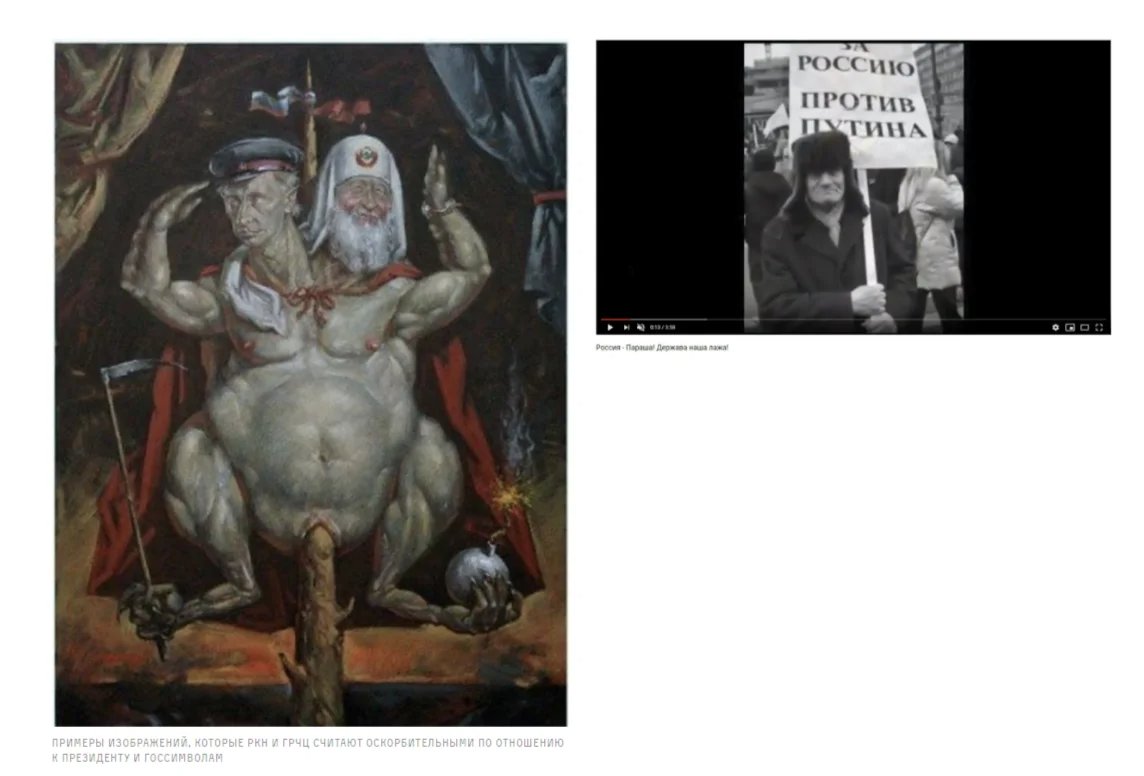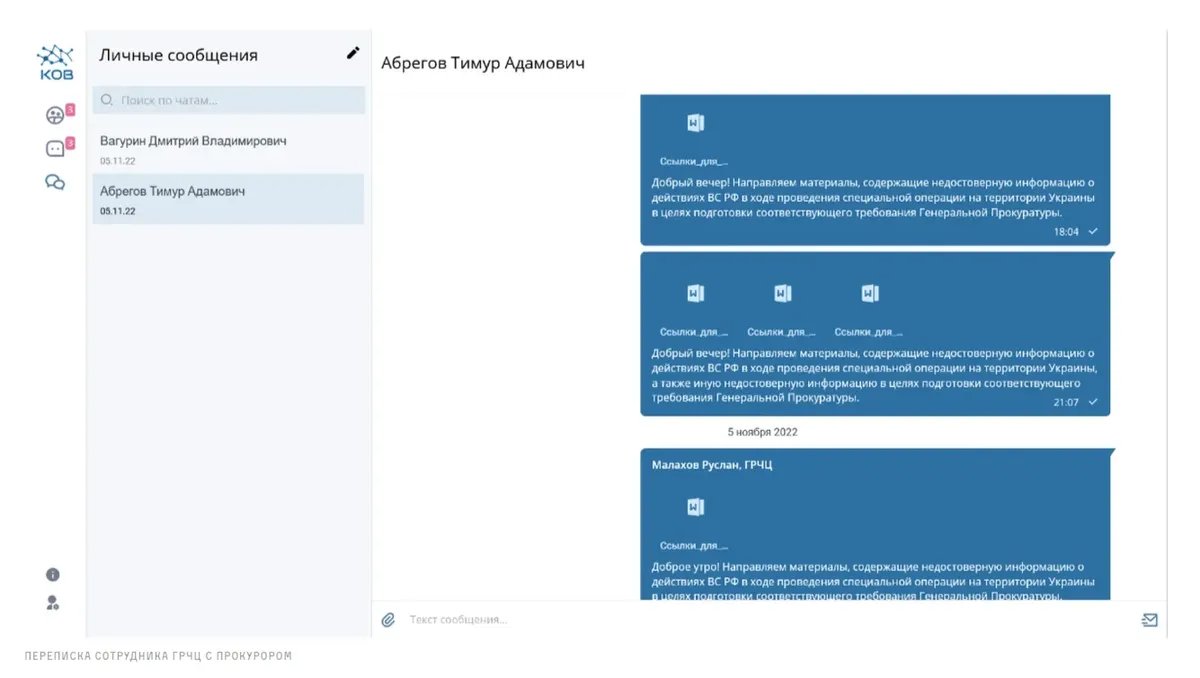Russia’s media watchdog Roskomnadzor monitors negative messages about President Vladimir Putin online and compiles reports on protest sentiments of the Russian public in each federal district and even in separate regions, an investigation published by IStories and Süddeutsche Zeitung reveals.
The investigation is based on leaked emails by a sister company of Roskomnadzor, the Main Radio Frequency Centre (GRFC).
Employees of the GRFC monitor negative comments by local residents following Putin’s visits to Russian regions. Based on the information they find, the GRFC then compiles reports that are sent to the presidential administration and law enforcement agencies.
“Commenters made ironic remarks regarding Vladimir Putin’s quote ‘Working hard is a talent in itself. It’s not just, excuse me, a rubber bum.’ They noted that this statement, like other speeches by the Head of State, cause them ‘to feel nothing but second-hand embarrassment,’”
a fragment of such a report published by IStories reads.
The reports also include the number of negative messages recorded over the period of monitoring, main newsworthy events, and “points of information tension” in Russian regions: that is, events that can cause a public outcry.

Screenshot: a report by GRFC published by IStories
IStories analysed the available reports and concluded that Putin had received the highest number of negative comments online in the autumn of 2022 due to mobilisation in Russia and the explosions on the Crimean Bridge.
What is more, the GRFC monitors messages about Putin’s health. Job candidates were offered to “monitor newsworthy topics about the president’s worsening health” as a test task.
Negative messages are being searched with the use of the Brand Analytics system using the following keywords: “bald midget”, “PutinThief”, “Corruptionist-in-Chief”, “Putler”, and others.

Examples of pictures that the Russian censorship agency and the GRFC consider offensive towards the president. Screenshot: IStories
Besides, Russian censors monitored images mocking Putin, in particular picturing him as a “homosexual” or dressed as a woman, IStories writes.

Message history between a GRFC employee and a prosecutor in an internal communication messenger. Screenshot: IStories
It has also been reported today that Roskomnadzor plans to use artificial intelligence to monitor “manipulations and social polarisation” online. Moreover, reporters got hold of 804 names that the GRFC collected information on over 2020-2022 to potentially place them on Russia’s “foreign agent” list. A total of 139 people from those lists are already on the official “foreign agent” register.
Cyber Partisans, a Belarusian team of hackers, announced in November 2022 that it had gained access to the emails of the GRFC internal network. They downloaded the documents, message and email logs of employees, as well as employee surveillance systems coming up to over 2 terabytes. Cyber Partisans handed over the information to reporters of Süddeutsche Zeitung, IStories, and other Russian media outlets. The leak is referred to as RussianCensorFiles.
